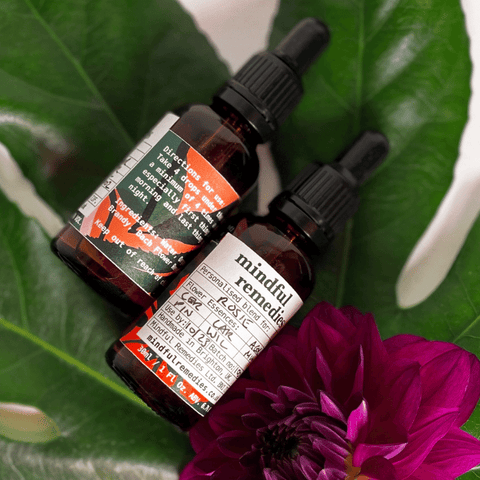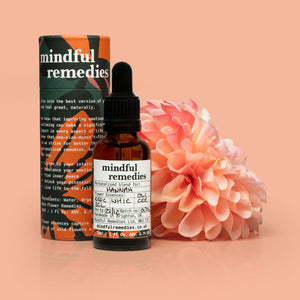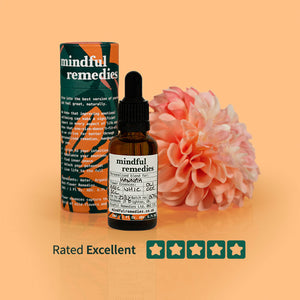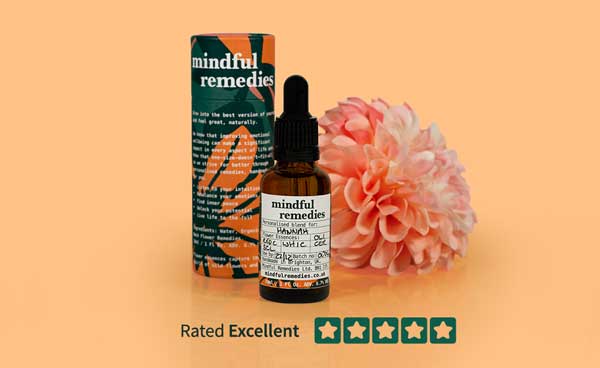your basket
- choosing a selection results in a full page refresh

Do you find it difficult to connect with others or engage in social situations? Do you feel like you're constantly pushing people away or struggling to form meaningful relationships? If so, you may be experiencing anti-social behaviour. While this term is often associated with criminal activity, it can also refer to a range of behaviours that make it difficult to connect with others, such as shyness, social anxiety, rudeness and withdrawal. Fortunately, there are many tools and techniques that can help manage anti-social behaviour, including Bach Flower Remedies. In this blog post, we'll explore what Bach Flower Remedies are and how they can help with anti-social behaviour. We'll also provide tips for using Bach Flower Remedies and other techniques to manage anti-social behaviour and build positive relationships.
Anti-social behaviour is a term used to describe a wide range of actions and behaviours that are disruptive, harmful, or disrespectful to others. It can include everything from minor acts of rudeness and incivility to more serious offences such as vandalism, theft, and violence.
While some people may engage in anti-social behaviour as a means of intentionally causing harm, others may do so inadvertently due to underlying psychological or social issues. For example, social anxiety, depression, and trauma can all contribute to anti-social behaviour by making it difficult for individuals to form and maintain positive relationships with others.
Some common forms of anti-social behaviour include:
It's important to note that not all anti-social behaviour is intentional or criminal in nature. Some people may simply struggle to connect with others due to psychological or social factors beyond their control. Whatever the cause, anti-social behaviour can have serious consequences for individuals, relationships and society as a whole.

If you're interested in using Bach Flower Remedies to help manage anti-social behaviour, here are some tips to help you get started:
Firstly, what are Bach flower remedies?
Bach Flower Remedies are a form of natural medicine that was developed in the 1930s by Dr Edward Bach, a British physician and homeopath. The remedies are made from flower essences that have healing properties for a range of emotional and psychological conditions. Dr Bach believed that emotional and mental states could impact physical health and that addressing emotional imbalances was an important part of treating illness and promoting overall wellbeing. Today, Bach Flower Remedies are widely used around the world as a natural and holistic approach to emotional and psychological health. There are 38 individual remedies, each designed to address specific emotional states, such as anxiety, sadness, anger and confidence. The remedies are safe and gentle, and can be used alone or in combination with other forms of treatment to help manage a range of emotional and psychological conditions.

Bach flower remedies can be helpful in addressing the underlying emotional issues that contribute to anti-social behaviour. Some remedies that can help include:
At Mindful Remedies we offer the ability to create your own personalised flower remedy blend choosing up to seven flower remedies in a treatment bottle.
In addition to Bach Flower Remedies, there are many other tools and techniques that can help manage anti-social behaviour and promote positive relationships with others. Here are some additional tips to consider:

By combining Bach Flower Remedies with these other tools and techniques, you can develop a holistic approach to managing anti-social behaviour and building positive relationships with others.
In conclusion, anti-social behaviour can be a challenging issue to manage, but there are many natural and holistic tools and techniques available to help. Bach Flower Remedies are a gentle and effective way to address emotional imbalances and promote overall well-being. However, it's important to remember that there is no one-size-fits-all solution to anti-social behaviour, and it may take time and experimentation to find the right combination of remedies and techniques that work for you.
If you're interested in creating your own personalised blend of Bach Flower Remedies, consider Mindful Remedies. With Mindful Remedies, you can select up to 7 remedies to create a custom blend that is tailored to your unique needs and symptoms. This personalised approach can help ensure that you're getting the most effective combination of remedies for your particular situation. By taking a proactive and holistic approach to managing anti-social behaviour, you can improve your emotional well-being and build positive relationships with others.

Since 2021, Lucy Edwards, a qualified Bach Flower Practitioner and the driving force behind Mindful Remedies, has connected with clients across the world. Crafting thousands of personalised remedies, Lucy has supported individuals' emotional wellbeing, shipping remedies to far-flung places like the USA, Thailand, and Australia.
Lucy is readily available for conversations, offering personalised advice to guide you on the path to holistic wellness. It's important to note that she's not only qualified but also registered with the Bach Centre, ensuring that every consultation and remedy adheres to Dr Bach’s original guidelines for expert care and efficacy.
Exclusive pricing 20% off your first subscription order and 5% off all future orders
VIP treatment Receive personalised advice from Lucy, free gifts & 15% off gift vouchers
Easy to manage Edit remedy, change schedule, pause or cancel at any time
Exclusive online workshops Access to workshops focusing on emotional wellbeing, guided by Lucy
Early access to new products Be the first to try out new remedies or wellness products, before anyone else



